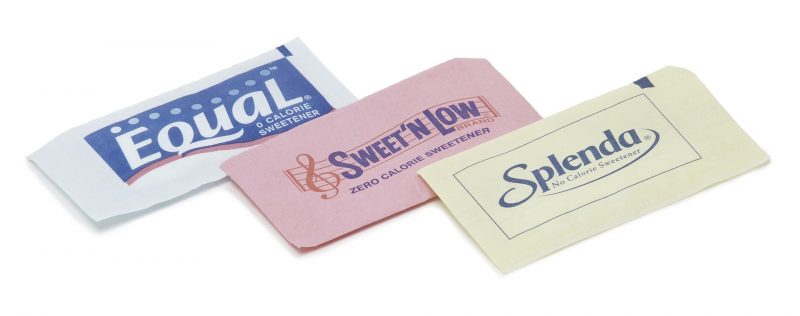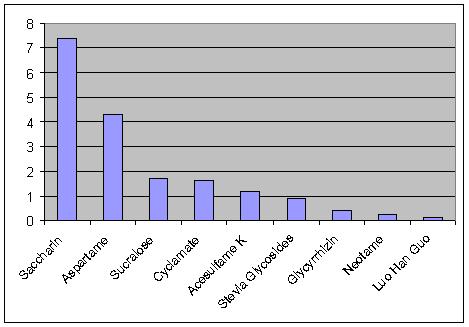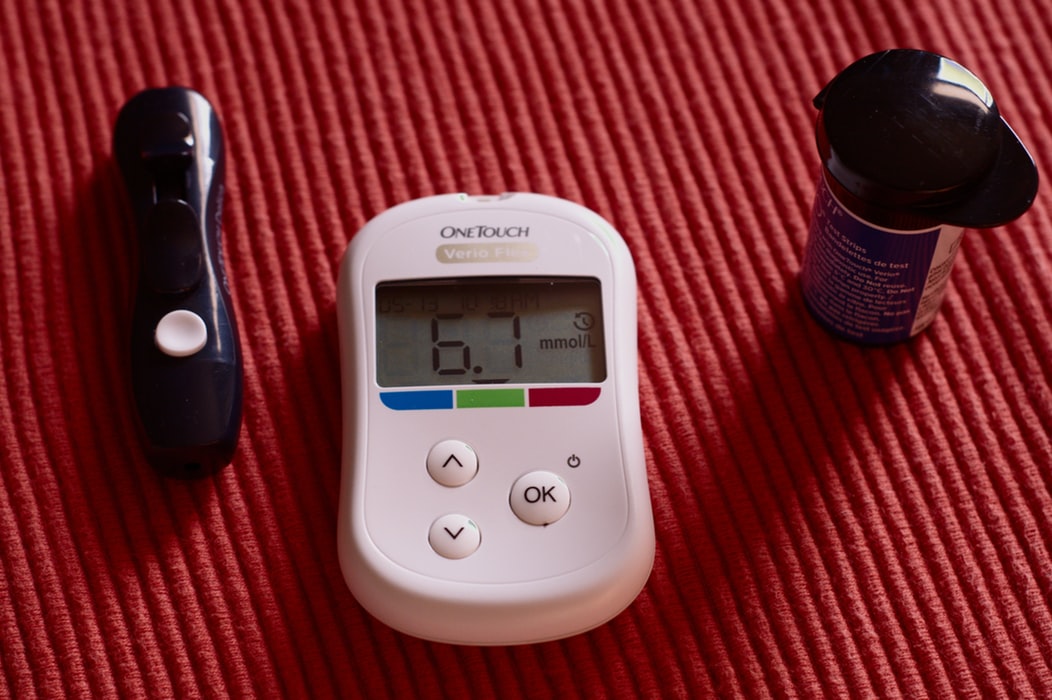As someone who who was born in 1970, the question as to whether artificial sweeteners can cause cancer has existed literally all of my life. This is because, since 1969, research like this has been emerging: Carcinogenicity of saccharin.
The abstract of the report from this research states:
Saccharin is carcinogenic for the urinary bladder in rats and mice, and most likely is carcinogenic in human beings.
https://www.ncbi.nlm.nih.gov/pmc/articles/PMC1637197/
On the 9th March 1977, in the face of such information, the United States Food and Drug Administration (FDA) announced that it would ban the use of Saccharin in food and beverages.
So far, so scary.
But I’ve got ahead of myself, I need to establish some background information.
On Wikipedia, ‘Artificial Sweetener’ is listed under ‘Sugar Substitute’. I won’t speculate on the reasoning behind this and, instead, leave you to draw your own conclusions. In any event, Wikipedia defines an artificial sweetener (sugar substitute) as:
A food additive that provides a sweet taste like that of sugar while containing significantly less food energy than sugar-based sweeteners.
https://en.wikipedia.org/wiki/Sugar_substitute
Sadly, nothing about artificial sweeteners is easy and even such a simple sounding statement is full of rabbit holes, down which I refuse to get drawn. The primary of these rabbit holes revolves around the taste of sugar. Sugar, in this instance, is defined as Sucrose, or table sugar.

Splenda, a brand made from Sucralose, was attacked from all sides for its advertising slogan: “Splenda is made from sugar, so it tastes like sugar.”
For my part, I’m perfectly happy to concede that none of the artificial sweeteners taste, or have a ‘mouth feel’, that is the same as sugar. To the best of my knowledge, the taste of an artificial sweetener has nothing to do with whether or not it can cause cancer. If you want to see my thoughts on sugar, see here.
Going back to artificial sweeteners, I’m going to confine my definition to the high intensity lab based products. This means that I will not be talking about plant based products like Stevia rebaudiana (Stevia) and Siraitia grosvenorii (Monk Fruit or Luo Han Guo). Likewise, I will ignore Sugar Alcohols (Polyols) like Sorbitol.
I remain to be convinced that plant based sugar substitutes or sugar alcohols are any less ‘artificial’ than, say, Saccharin, despite being marketed otherwise. Plant based sweeteners are also identified as ‘high intensity’. Polyol is ‘hydrogenated sugar’, in the same way that traditional margarine is hydrogenated fat. But these are discussions for another day.
The FDA recognises six high intensity artificial sweeteners, as follows:
This does not mean that these artificial sweeteners are all recognised everywhere. Additionally, there are other artificial sweeteners that are available elsewhere, that are not recognised by the FDA. Not least Cyclamate.
Cyclamate was the original battleground about whether artificial sweeteners cause cancer. In the US, at least, this was a battle that artificial sweeteners lost. A situation that remains unchanged to this day.
The history of Cyclamate is fairly typical of artificial sweeteners, not just because research emerged that declared the chemical could cause cancer. For one thing, it was discovered by accident. in the case of Cyclamate, Michael Sveda, a grad student, was working on something unrelated in the lab. He put his cigarette on the bench (that he’d been smoking, in the lab…!). When he put it back in his mouth, he noticed that it tasted sweet (because he’d inadvertently contaminated it with the chemical he was testing…!).
Presto Chango! What was an anti-fever medication became an artificial sweetener.
Cyclamate was originally used as an additive in other medications, to mask their inherent bitterness. Things like antibiotics. In 1958, it was classed as GRAS (Generally Recognised As Safe) by the FDA and used as a sugar substitute for diabetics. As it was stable at high temperature, Cyclamate was also marketed as a sugar substitute for cooking and baking. This is also a fairly standard development process for an artificial sweetener.
This commonality continued in 1969, when research showed that the artificial sweetener Cyclamate could cause cancer in rats. This led to the Department of Health Education and Welfare stomping all over the FDA’s toes, and removing the GRAS designation. As a result, in 1970, the FDA banned Cyclamate from food and drink in the US.
And the research that led to this ban? 240 rats were fed a daily mixture of Cyclamate and Saccharine, at the equivalent of a human drinking 550 cans of diet soda. Just to be clear: that’s you, drinking 550 cans of Pepsi Max, every day! Of the 240 rats, 8 of them developed bladder cancer. The conclusion? Artificial sweeteners can cause bladder cancer in humans.
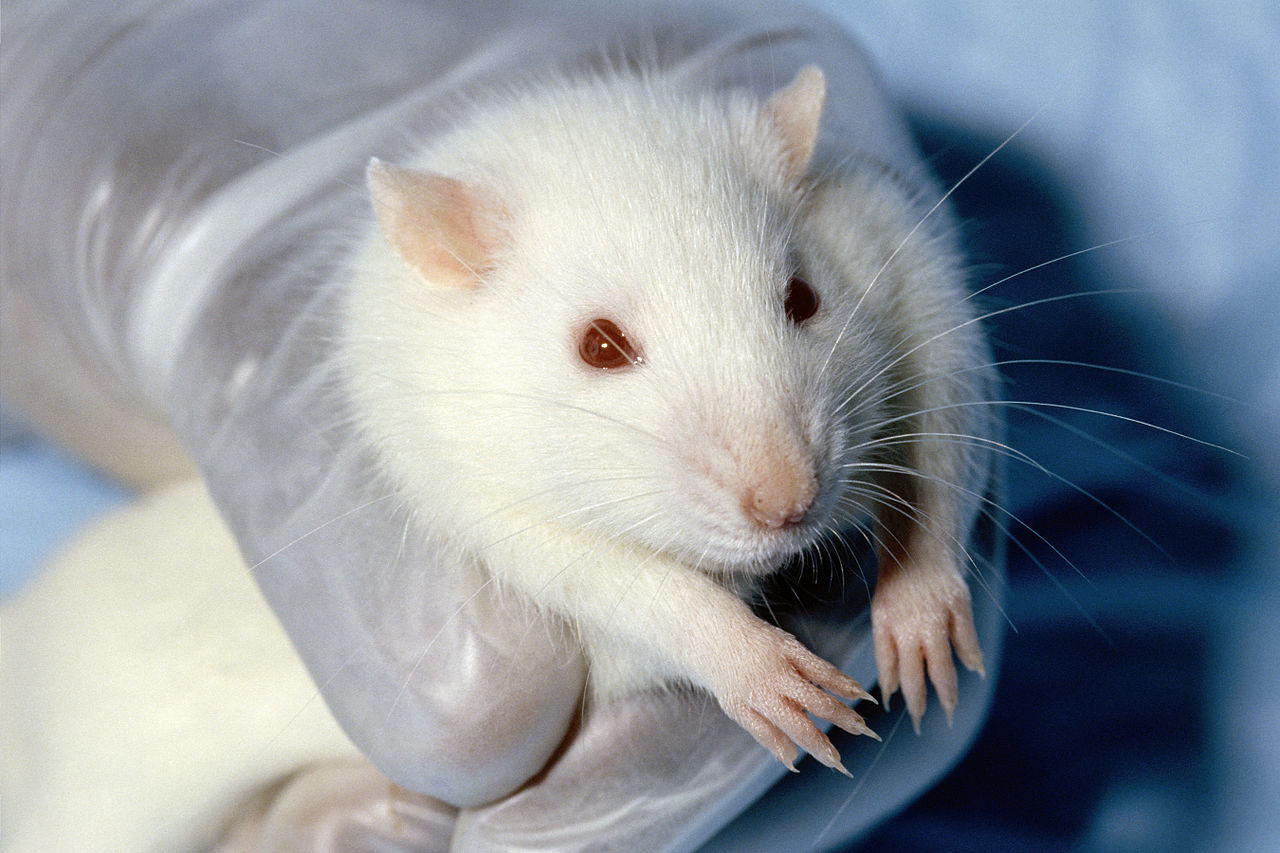
Despite the unrealistic nature of the test. Despite, even, that the results of the test have not been replicated, Cyclamate remains banned in the US. You might not be surprised to discover, given everything that you’re read, that Cyclamate is approved for consumption in over 100 countries, including those in the European Union (EU).
And that brings us neatly back to the FDA ban on saccharin, which I mentioned at the top. The ban was immediately challenged and, ultimately, overturned. Saccharine is currently approved by the FDA for use in foods.
But should it be? Have the last 50 years of research told us anything about whether artificial sweeteners cause cancer?
You’d think that Saccharin would be the best place to start. After all, Saccharin was the first artificial sweetener, having been discovered in 1879 (by accident!).
Except, that it isn’t the first. Not by a long shot.
The Romans boiled grape juice in lead pots to produce defructum. This was then further concentrated into Sapa, which was used as a sweetener for wine and a means of preserving fruit. The problem was, that boiling the grape juice in the lead containers, introduced lead acetate, also known as sugar of lead, into the mixture. This, undeniably made the Sapa much sweeter than it would otherwise have been. Unfortunately, it also introduced the spectre of lead poisoning, which can have genuinely horrifying consequences, including cancer.
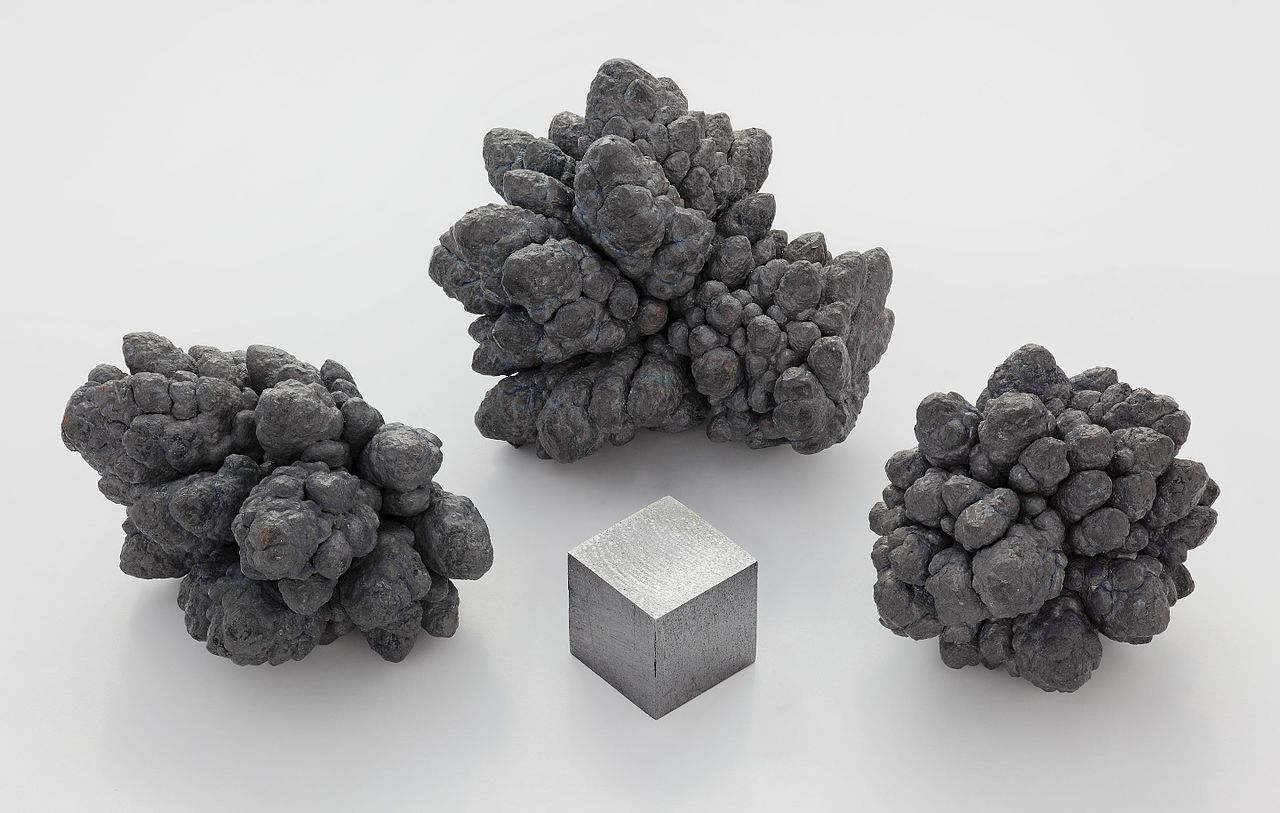
By Alchemist-hp (talk) (www.pse-mendelejew.de) – Own work, FAL, https://commons.wikimedia.org/w/index.php?curid=12381318
On which basis, the consumption of the first artificial sweetener, which was discovered by accident, was a cause of cancer.
As such, questioning whether the second artificial sweetener, saccharine, might also be a cause of cancer, seems entirely sensible. And, with that in mind, questioning all those artificial sweeteners that follow, also makes sense.
And these questions have been asked. A lot!
And the answer seems to be, a very resounding no.
No, artificial sweeteners do not cause cancer in humans.
How can I be so sure?
Because, in 1998, the International Agency for Research on Cancer (IARC), a part of the World Health organisation (WHO) downgraded its rating of saccharin from 2B (possibly carcinogenic to humans) to 3 (not classifiable as to its carcinogenicity to humans). The other artificial sweeteners are being evaluated by the IARC as a high priority during their current cycle (2015-2019). It’s not anticipated that they will be more highly rated than saccharine.
In addition to this, research into this question of whether artificial sweeteners cause cancer has been going on for for than 50 years. And, collectively, it all points in one direction: that the sensible use of artificial sweeteners in food and drink is safe. .
And artificial sweeteners are used in a lot of food and drink!
The sugar substitute market is projected to be worth $2.8 billion (£2.25bn/€2.5bn) by the year 2021. Of this, sucralose has the biggest market share, at 30%.
As you can see from the graph, Cyclamate still has the fourth biggest share Worldwide, despite being banned in the US. Additionally Stevia and Luo Han Guo both appear on the graph, which is titled, ‘Intense Sweetener Market Share’, on the Sugar And Sweetener Guide site. This is further indication, for me, that plant based sweeteners are in the same category as artificial sweeteners.
After reading all of this, the questions must be asked, why use artificial sweeteners at all? Why would anyone use a sugar substitute, when we have actual sugar?!
Well, aside from the reason that I’ve already mentioned, to hide the taste of medical products, there are a number of reasons:
- Cost
- Shelf Life
- Weight control
- Diabetes
In terms of the first two, it’s cheaper to produce artificial sweeteners than sugar. This is especially the case when you consider their relative sweetness. Artificial sweeteners also have a longer shelf life than sugar, mainly because its entirely synthetic…
The weight control element comes from the fact that artificial sweeteners can be 100s of times sweeter than natural sugar. This means that you only need a fraction of the amount of artificial sweetener, as compared to sugar, to achieve the same sweetness. Sugar contains 4 calories per gram. Sucralose contains 3.31 calories per gram. But, as sucralose is 600 times sweeter than sugar if a recipe calls for 100g of sugar (400 calories) you can use 0.16g of sucralose (0.6 calories) instead, to achieve the same sweetness.
So, this should mean that if you’re on a diet and you replace sugar with artificial sweetener, the weight should fall off you; right? Well, no. But I’ll get on to that.
In terms of diabetes, artificial sweeteners aren’t carbohydrates. This means that they don’t increase blood sugar levels. As such, artificial sweeteners allow those with diabetes to have sweet treats, safely. Although there are, of course, some who dispute this. Not that I’m getting into the diabetes aspect; I’m here to explain that artificial sweeteners do not cause cancer.
And, to that end, I’m going to enlist some expert help. Cancer Research UK states the following:
Artificial sweeteners are used in a wide variety of foods and drinks. While there have previously been questions over their safety after early animal studies, large studies in humans have provided strong evidence that artificial sweeteners do not increase the risk of cancer.
https://www.cancerresearchuk.org/about-cancer/causes-of-cancer/diet-and-cancer/food-controversies#food_controversies1
The Cancer Council NSW has the following to say:
While there is evidence to link high-dose artificial sweetener use with cancer in animals, there is no evidence to support such a link in humans.
https://www.cancercouncil.com.au/86047/cancer-information/general-information-cancer-information/cancer-questions-myths/food-and-drink/artificial-sweeteners-do-not-increase-cancer-risk/
I could go on, but if these aren’t enough to convince you that artificial sweeteners do not cause cancer in humans, then nothing that I can say will convince you.
But this isn’t to say that there aren’t ongoing health concerns, there are. These are, however, being consistently studied. No one is going to forget about artificial sweeteners. As new testing technologies are developed, artificial sweeteners are going to be retested. And quite rightly so. These things are in an incredible amount of products it’s vital that they’re safe. Long may the testing continue, I say.
And while the negative health effects of artificial sweeteners may have been overstated, so too have the positive effects. There is no conclusive or even compelling evidence that switching to artificial sweeteners results in weight loss. Certainly not in isolation from a healthy diet and regular exercise.
According to an article on the Cancer Research UK site, an independent analysis of 56 studies, “found very little evidence to suggest low energy artificial or natural sweeteners, like stevia, are helping lots of people to lose weight.” The article then went on to say, “But when 3 studies were picked out that only included overweight or obese adults, artificial sweeteners did provide a small benefit to weight loss.“
Basically, if you’re overweight and dieting, switching to artificial sweeteners can help with the weight loss. Otherwise, switching to artificial sweeteners, including the plant based varieties, hasn’t been shown to do much of anything.
Other things that switching to artificial sweeteners hasn’t been shown to do:
- Weight gain. No reliable studies have shown this.
- Increase in hunger. Nope; artificial sweeteners are artificial… they don’t trigger hormone responses.
- Psychological desire to compensate for the missing calories that our body thinks it had from artificial sweeteners. No evidence of this one either.
So, while artificial sweeteners are not unhealthy, they’re not intrinsically healthy either. Their biggest benefit might be a dental one; artificial sugars don’t cause your teeth to decay like real sugars do.
The exception, of course, is for diabetics. At least, for those suffering with diabetes, artificial sweeteners offer a harmless way to satisfy a sweet tooth. That’s a positive health benefit, by anybody’s standards.
And so, while artificial sweeteners do not cause cancer they, like everything else, should be taken in moderation. Personally speaking, as someone who has been obese and has lost a lot of weight, I feel that the process would have taken a lot longer if I was drinking regular sodas, instead of diet sodas.
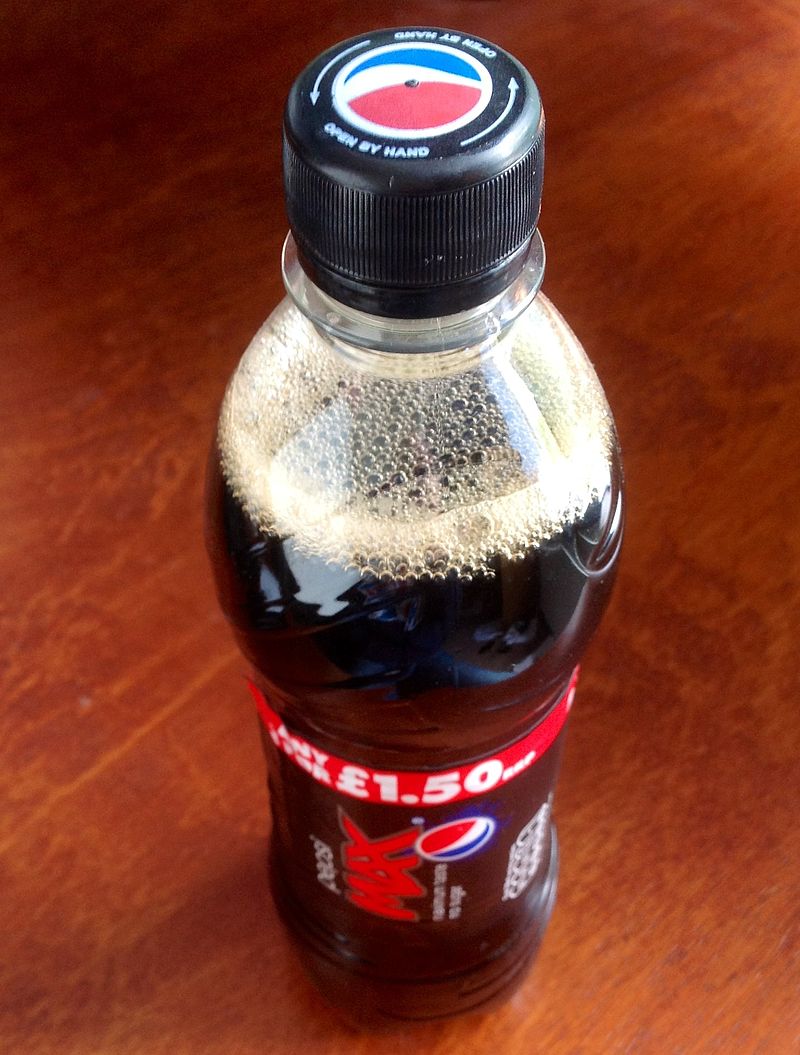
By User:boweruk – Own work, CC BY-SA 3.0, https://commons.wikimedia.org/w/index.php?curid=26322895
Most sodas contain around 9g of sugar per 100g. I drink around 1,000g of soda a day (I don’t drink tea or coffee). That’s 360 calories worth of sugar that I’m avoiding, every day, by drinking diet soda. Over the course of a year, that adds up to 131,400 calories. Given that it takes a 3,500 calorie deficit to lose a pound of fat, that’s 38 pounds of weight that I didn’t have to contend with, because I’d opted for artificial sweeteners.
And, while I accept that this is overly simplistic, it’s also a simple calculation.
Another overly simplistic view is that obesity increases the risk of several types of cancer, including my own; bowel (colon) cancer. If switching to artificial sweeteners can decrease obesity, then it will actually reduce the risk of cancer. So, if you are obese, it might be not switching to artificial sweeteners that can cause cancer (indirectly).
